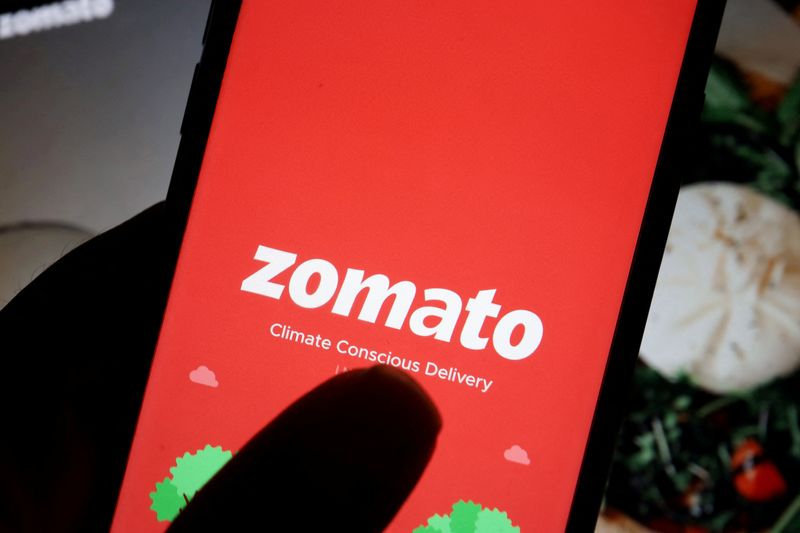By Scott Murdoch and Aditya Kalra
HONG KONG/NEW DELHI (Reuters) -Uber Technologies on Wednesday sold its 7.8% stake in Indian food delivery firm Zomato Ltd for $392 million via a block trade on local exchanges, two sources familiar with the matter told Reuters.
The deal was executed at 50.44 rupees per share, they said. Zomato and Uber (NYSE:UBER) did not immediately respond to requests for comment.
Shares of Zomato Ltd fell as much as 9.6% to 50.25 rupees on India's Bombay Stock Exchange (BSE). The stock cut some losses later and was trading down 5.7% by 0634 GMT. On Tuesday, Zomato's stock had closed at 55.6 rupees on BSE.
Reuters reported on Tuesday the offer size of the block deal was set to be 612 million shares, according to its term sheet, which did not disclose the seller.
As per Reuters calculations, the stake sale by Uber was worth 30.87 billion rupees ($392 million).
Uber on Tuesday reported a net loss of $2.6 billion for second quarter of 2022, of which $1.7 billion was related to its equity investments, including its Zomato stake.
Its stake sale comes at a time when Indian startups are struggling to raise fresh capital amid a global market slump and criticism of sky-high valuations, after a blockbuster $35 billion in total fundraisings in 2021.
NEW BUYERS
BofA Securities was the sole bookrunner for the transaction.
One of the sources said the stake was bought by around 20 global and Indian funds, including Fidelity, Franklin Templeton and India's ICICI Prudential.
Fidelity could not immediately be reached for comment, while Franklin and ICICI declined to comment.
Zomato said on Monday it had recorded more orders and narrowed its loss for the June quarter to 1.86 billion rupees from 3.56 billion a year earlier.

The Indian food delivery company is also considering reorganising its management so its individual businesses would each have a CEO, while the parent company would be renamed "Eternal".
Backed by China's Ant Group, the company made a stellar debut on July 23, 2021 on the Mumbai stock market, but its shares have lost more than 50% of their value since then on concerns about valuations and growth amid turmoil among global growth stocks.